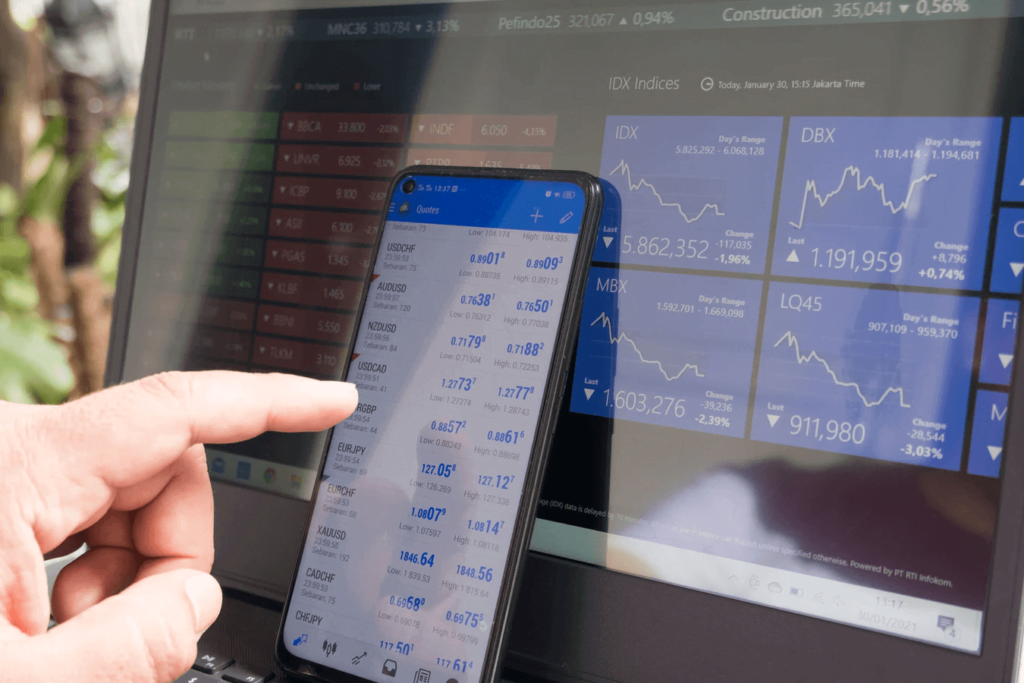To be successful in the forex market, you need to understand how to minimize your loses and maximize your profit, that is while I put up this article on how to trade synthetic indices using the smart money forex concept.
Don’t be left out, Learn how to trade forex the right way, Click here to get started
Before you can trade synthetic indices using the smart money forex concept, you need to study and understand price action; this includes -understanding what happen in the forex market in the past, why it happens, then observing the present position of price action and based on your observation, predicting the next direction of the market.
Don’t be left out, Open a free trading account now by clicking here
If you can truly understand price action and how to apply it accordingly, you will join the few of us who are making sustainable income from the Forex Market.
It is my earnest desire that this short guide on ‘How to trade synthetic indices using smart money forex concept will help you understand Boom and Crash, so that you can make sustainable income from the market.
Table of Contents
How to Trade Synthetic Indices using the Smart Money Forex Concept
Regardless of what you think or your experience in the market, let me say this, anyone with the right knowledge and the right attitude can make sustainable income from the Forex market. In the forex market, we make decision by studying and understanding past data like:
- HH – Higher High
- HL – Higher Low
- POI- Point of Interest
- Point of Entry
- Order block
- Supply and Demand Zone
- Resistance and Support Zone
- Candlestick patterns
- Chart patterns
- Swing high or swing low
- Market structure
- Trendline
- Risk to Reward ratio, etc.,
As a new trader or a struggling trader, you need to take time to study and understand the above listed item; I know they may look simple, but they are the fundamental knowledge you must have if you want to make sustainable income from Forex.
What you need to know about the Smart Money Forex Concept
- Smart Money Forex Concept is a price action driven strategy
- It is the concept most institutional traders uses in the market
- It allows traders to enter high probability trade with maximum returns on investment
- It minimizes risk and allows traders to trade only the trends.
Steps to guide you when trading the smart money Forex concept
Regardless of what you have learn, please listen very attentively. When I started trading Forex few years ago, I was confronted with a very challenging situation, I wanted to draw trendline on my chart but I see too many highs and lows on the chart that I was confused on what to do, after about 10 minutes of staring at the chart, I finally prioritize the points and draw the trendline.
The trendline was not perfect, but I learned the concept of prioritization during the process, highlighted the key Supply and demand zones on the chart and listed out my point of interest on the chart, then monitor the price action closely. Though I did not place any trade, all my analysis played out effectively and that process inspire my confidence and motivated me to seek for more knowledge.
The first question you should ask yourself before placing any trade is: How does institutional traders or Market makers placed their trades? What informs their decision and how do they manage risk?
To answer this question, let look at the two types of entry in the Forex market.
Types of Entry:
They are basically two types of entry that you need to know:
Risk Entry: This is a type of entry where you identify a point of entry (POE), wait for price to reach your POE with pending orders without any confirmation.
- This can of entry is good for trading trend reversal
- Can be placed when price action reaches Higher Time frame Point of Interest (Supply and Demand zone)
- Risk entry is an aggressive entry, but you have to do analysis before placing the pending order.
Confirmation Entry: this is a type of entry that require analysis and confirmations from 3 timeframe analysis matrix before any trade is placed
- For this kind of entry, the risk is small but there is high rewards
- Trades is analysed from the higher timeframe Point of Interest to the Lower timeframe Point of entry before any trading decision is made
Both Risk Entry and Confirmation Entry accommodate the two main types of traders in the market:
- Support and Resistance Traders: Those traders that placed buy limit at support level and sell limit at Resistance level after careful top-down analysis
- Breakout traders: Those traders that placed buy stop above resistance level and sell stop below support level
Now that we have established this, let breakdown how you should analyse your trade:
I am hoping that you understand the concept of price action, if you don’t, drop a comment on this post or send an email to the editor and he will inform me to share a PDF on price action and trendline analysis with you, the PDFs are free and are just a guide to help you be a success in the market.
- Step 1: Adopt a three-timeframe matrix analysis before placing any trade; your three-time frame can be D1, H4 and M30, then placed the trade using M15 or M5. What this means is that, look at the Point of interest (POI) at these three timeframes, then based on your POI use the lower timeframe to monitor the price action movement before placing your trade.
- Step 2: If you are placing pending orders, learn to minimize risk by using Stop loss and Take profit; It’s not goof to place pending trades without any Stop loss or take profit.
- Step 3: Listen to the Candlestick: The candlesticks are always talking, listen, monitor and modify your position based on the candlestick movement.
- Step 4: If you are confused on the direction of the trend, wait for confirmation.
- Step5: Have a daily target and close when you hit the target it builds confidence and discipline.
This is the first part of the article; the second part will be updated soon. Please don’t give up, trading is risking but with the right knowledge success is very possible.
Read Also: How to Start Forex Trading and Make Sustainable Income in 2023
Disclaimer
Deriv offers complex derivatives, such as options and contracts for difference (“CFDs”). These products may not be suitable for all clients, and trading them puts you at risk. Please make sure that you understand the following risks before trading Deriv products: a) you may lose some or all of the money you invest in the trade, b) if your trade involves currency conversion, exchange rates will affect your profit and loss. You should never trade with borrowed money or with money that you cannot afford to lose.

